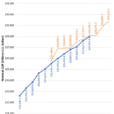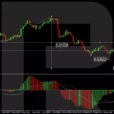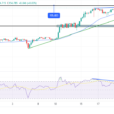Immigration, needless to say, is a hot button topic and Fed Chairman Jerome Powell has expressed concern about cutting off the flow of immigrants. He views immigration this way:
From an economic growth standpoint, reduced immigration would result in lower population growth and thus, all else equal, slower trend economic growth.
As for Trump, even after he toyed with the idea of letting more immigrants into the nation based on merit, he seems more concerned with the racial makeup of immigrants.
Governor Powell sees bad economic times coming from isolationism. He knows the workforce is aging. As discussed below, Powell is concerned about the strength of the workforce.
Free Trade and Open Societies
Minneapolis Fed President Neel Kashkari, a registered Republican, has said that immigration is key to economic growth, and Powell agrees with that. Kashkari is a free trade Republican but there are many from both parties who still hold to free trade as key to prosperity.
Free trade is open to abuse and is far from perfect. But the alternative is far worse. I said:
The US set up a system whereby free trade would thrive and nations would improve economically all over the globe. The theory behind that is that the more affluent the consumer, the more they will buy from our corporations.
But the system was seriously abused at times. Three major abuses can be singled out:
- American workers have been abused by jobs moving offshore without adequate compensation by the US government.
- And American consumers have been abused by liar loans and by financial products imported from globalist banking. The Federal Reserve Bank did not bail out the borrowers but rather bailed out the sources of the toxic loans! This has not been pleasantly received by the American public. All that abuse, corporate abuse of consumers included, must be acknowledged and owned. But it still is not fully owned.
- Nations claiming democracy have had their leaders murdered, sometimes at the hands of US forces. Latin America is a poster child for this past US behavior.
But free trade opens each society and creates efficiencies. David Ricardo made the case for free trade:
In the classical definition of free trade espoused by 18th century British economist David Ricardo, trade is generally thought of as goods being shipped from one nation to another to take advantage of what Ricardo termed comparative advantage: nations would benefit by exporting whatever they produced efficiently and importing what they did not produce efficiently.












Leave A Comment